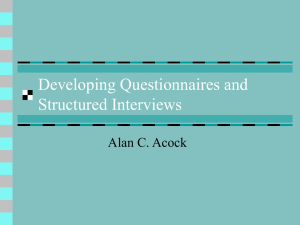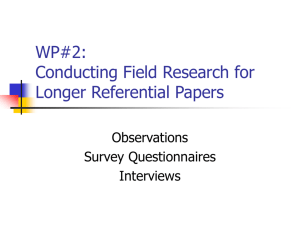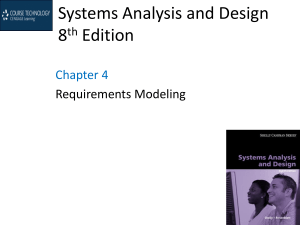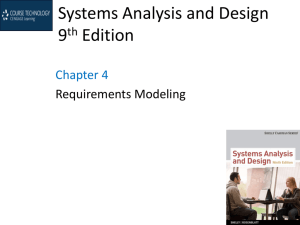Fact-Finding Methods Interviews Conduct the interview
advertisement
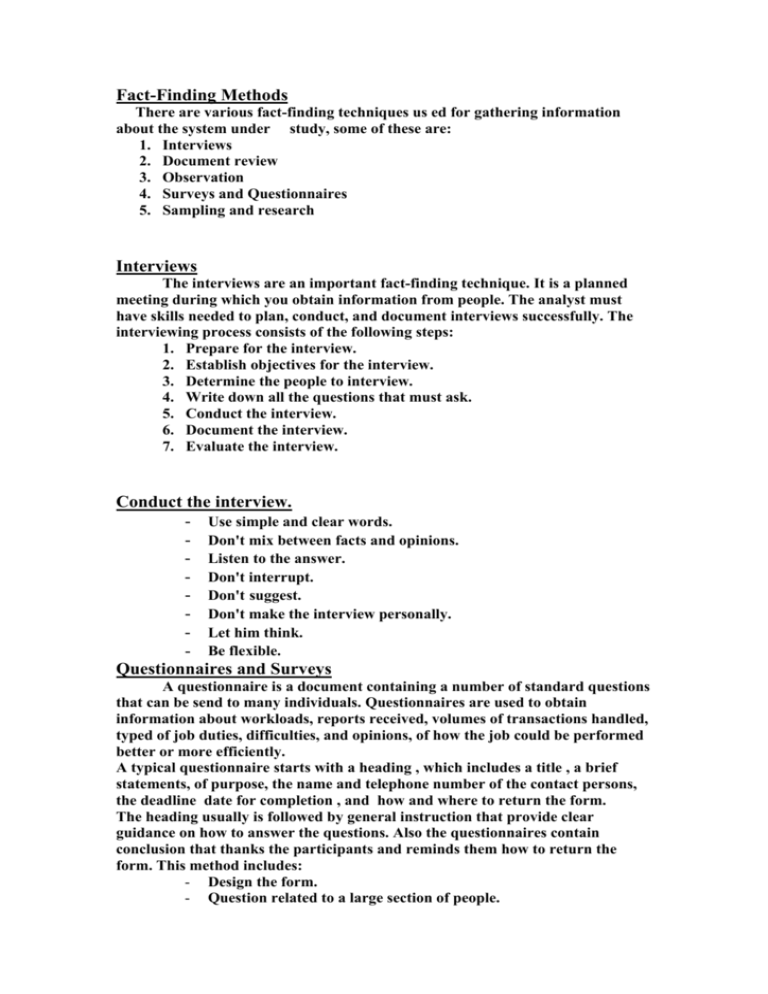
Fact-Finding Methods There are various fact-finding techniques us ed for gathering information about the system under study, some of these are: 1. Interviews 2. Document review 3. Observation 4. Surveys and Questionnaires 5. Sampling and research Interviews The interviews are an important fact-finding technique. It is a planned meeting during which you obtain information from people. The analyst must have skills needed to plan, conduct, and document interviews successfully. The interviewing process consists of the following steps: 1. Prepare for the interview. 2. Establish objectives for the interview. 3. Determine the people to interview. 4. Write down all the questions that must ask. 5. Conduct the interview. 6. Document the interview. 7. Evaluate the interview. Conduct the interview. - Use simple and clear words. - Don't mix between facts and opinions. - Listen to the answer. - Don't interrupt. - Don't suggest. - Don't make the interview personally. - Let him think. - Be flexible. Questionnaires and Surveys A questionnaire is a document containing a number of standard questions that can be send to many individuals. Questionnaires are used to obtain information about workloads, reports received, volumes of transactions handled, typed of job duties, difficulties, and opinions, of how the job could be performed better or more efficiently. A typical questionnaire starts with a heading , which includes a title , a brief statements, of purpose, the name and telephone number of the contact persons, the deadline date for completion , and how and where to return the form. The heading usually is followed by general instruction that provide clear guidance on how to answer the questions. Also the questionnaires contain conclusion that thanks the participants and reminds them how to return the form. This method includes: - Design the form. - Question related to a large section of people. - The question must be short. The answer = = =. Easy to fill. Easy to use from the analyst. The advantages of this method by comparing it with interview method are: - Economic in the time and the cost. - Involve large section of people. - Involve large section of subjects. The disadvantages: - Difficult in design the form. - Slowly action. - Don't understand the questions. - May good and logic answer but, does not meet the analyst requirement.


